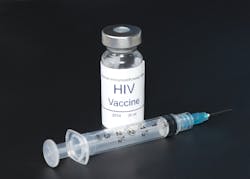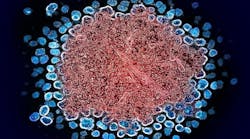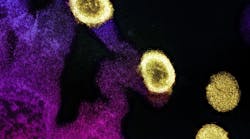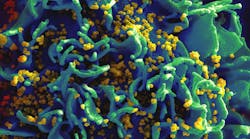Scientists have spent years trying to develop an effective HIV vaccine, but none have proven successful. Based on findings from a recently published study, a Johns Hopkins Medicine-led research team may have put science one step closer to that goal.
Their work first appeared online April 14, 2023, in the Journal of Experimental Medicine, and will be formally published in the July 3, 2023, issue.
Using a laboratory technique created at Johns Hopkins Medicine in 2010, the study researchers replicated the cellular environment in which specialized immune cells called antigen presenting cells (APCs) break down proteins derived from HIV and make them visible (“presented”) to the immune system’s frontline of defense, cells known as CD4+ T lymphocytes, or helper T cells.
Epitopes that are immunodominant have structures that uniquely fit like a lock and key with cell-surface proteins on APCs known as major histocompatibility molecules, or MHCs.
The researchers say that their analysis using the cell-free antigen processing system revealed three important findings: (1) the epitopes identified are indeed generated in humans who are HIV positive and lead to the development of memory CD4+ T cells (the immune cells that remember an antigen for future encounters); (2) the processing system can be very useful in predicting which parts of HIV protein antigens may yield the immunodominant epitopes that can be included in new vaccines; and (3) the system’s use of full-length natural proteins ensures that the impacts of any cellular environmental influences (such as those causing modifications of viral epitopes after infected host cells have produced them) are taken into account.





